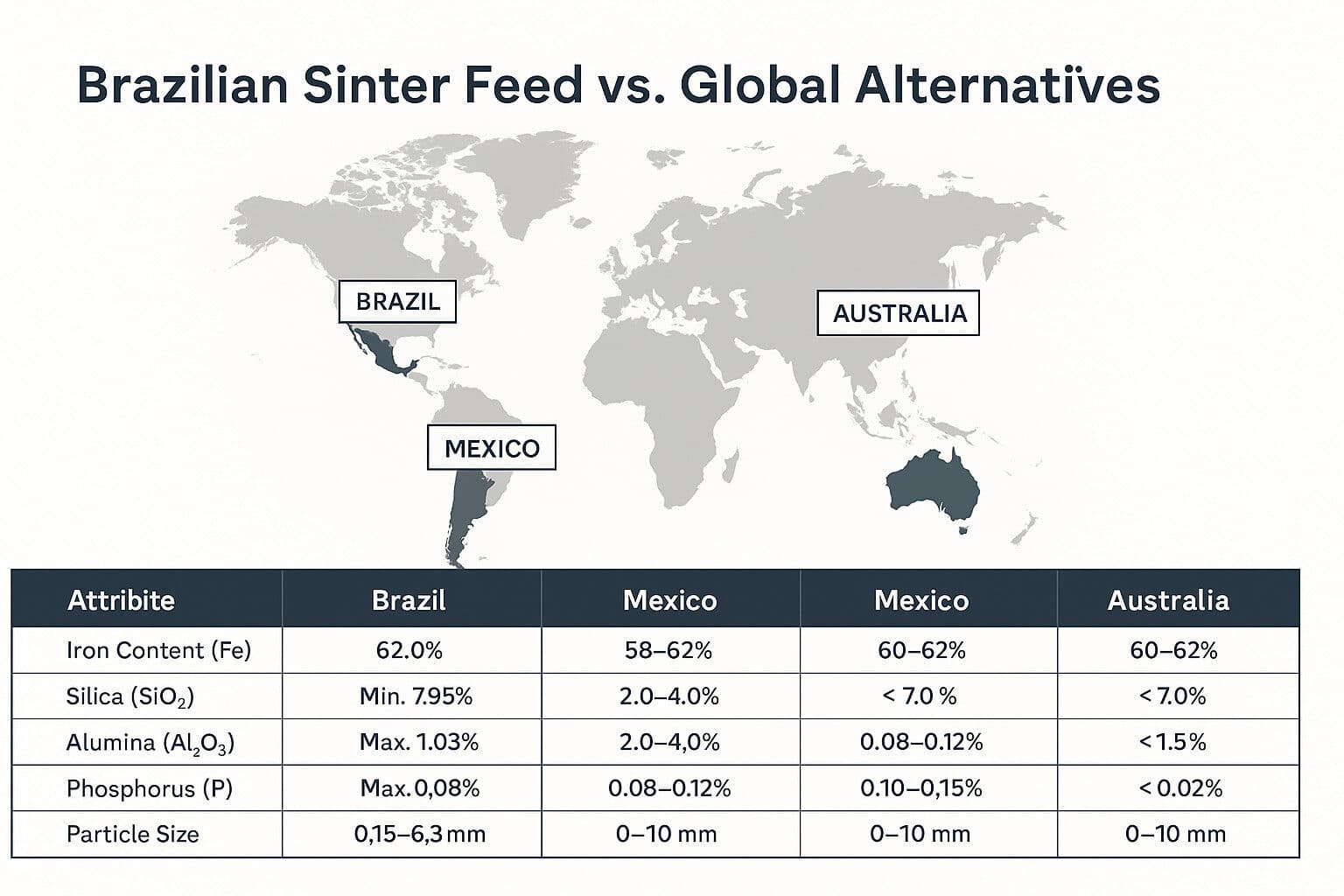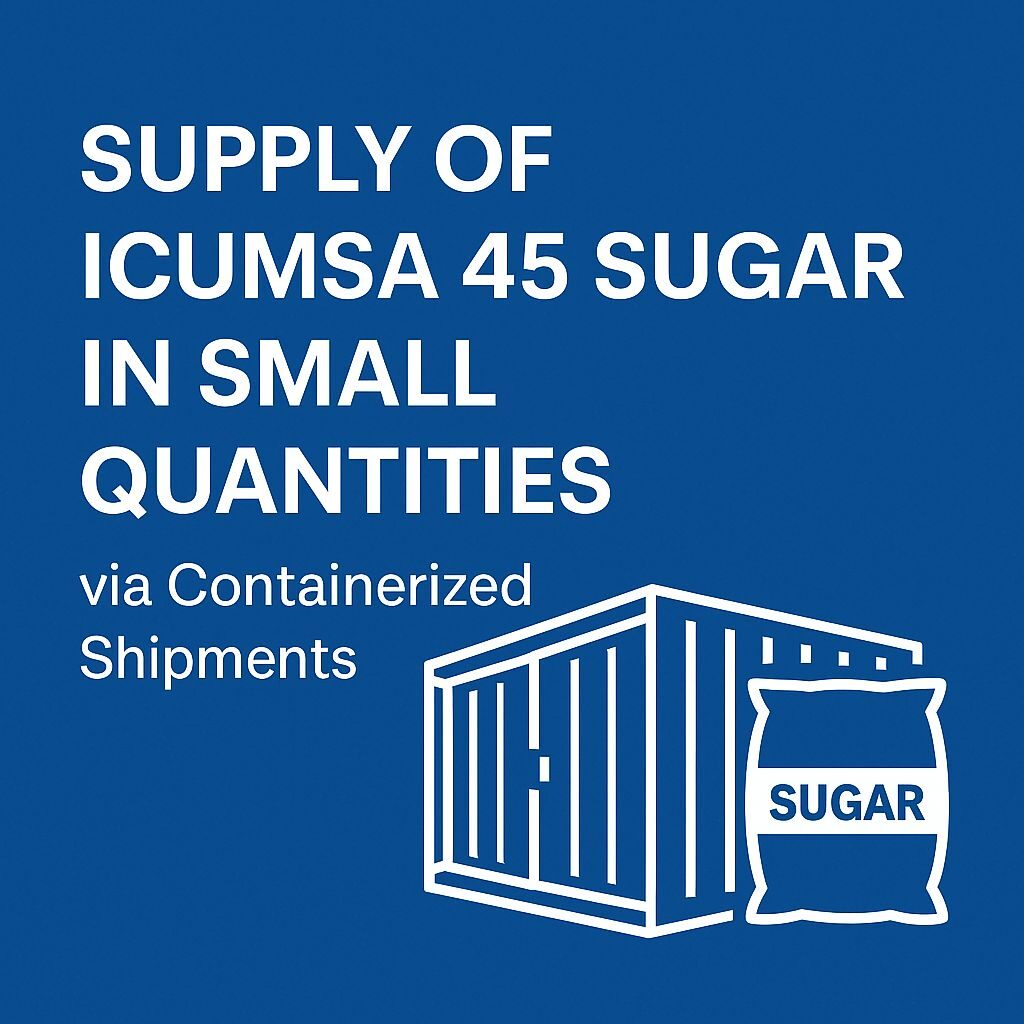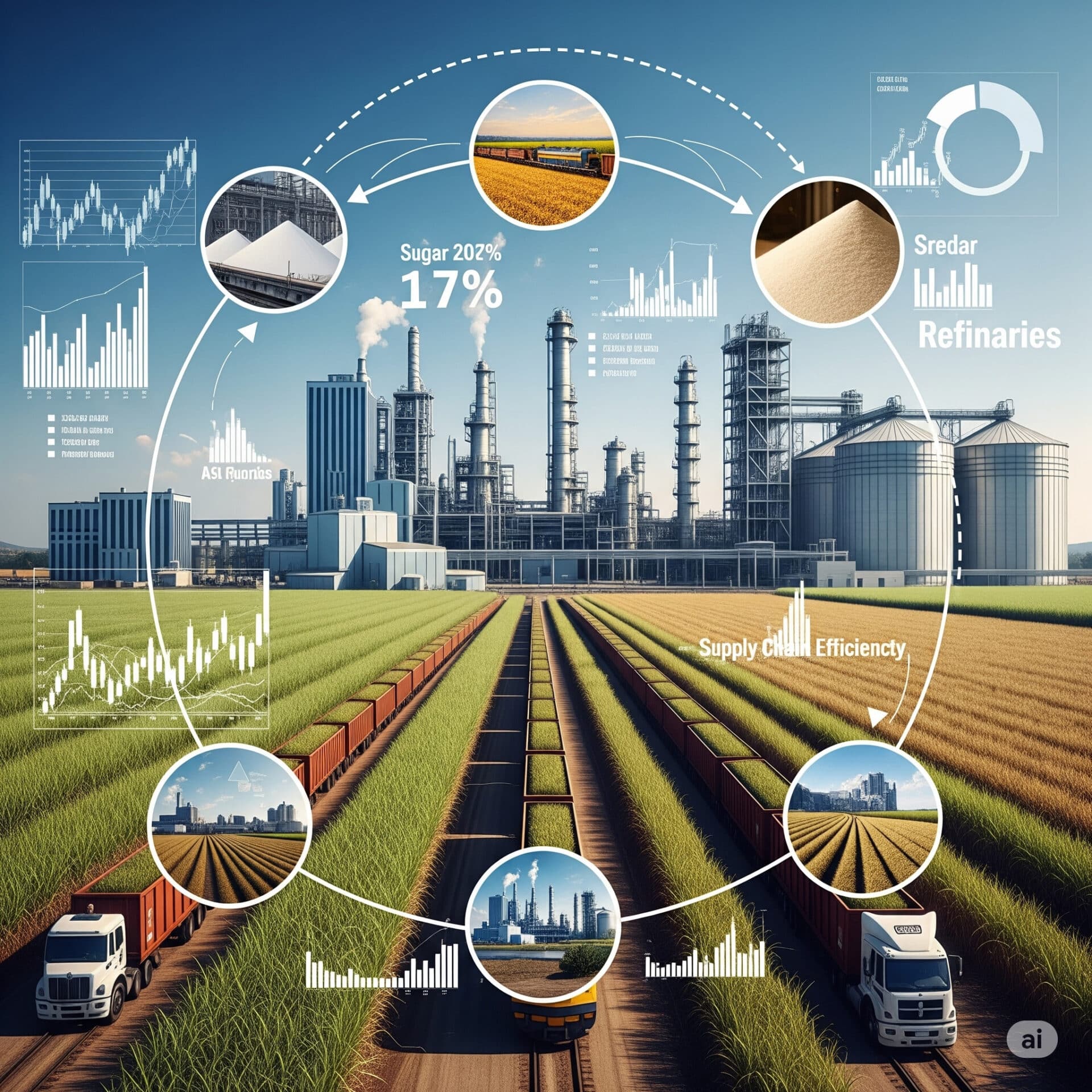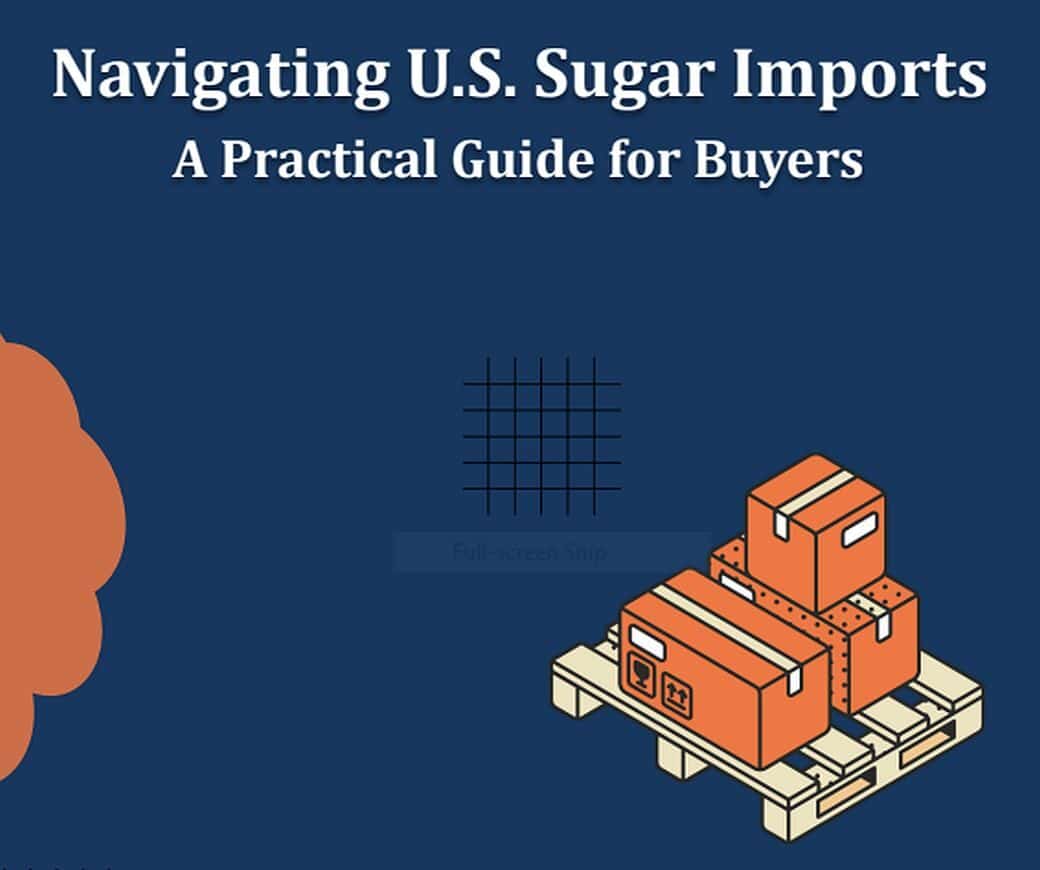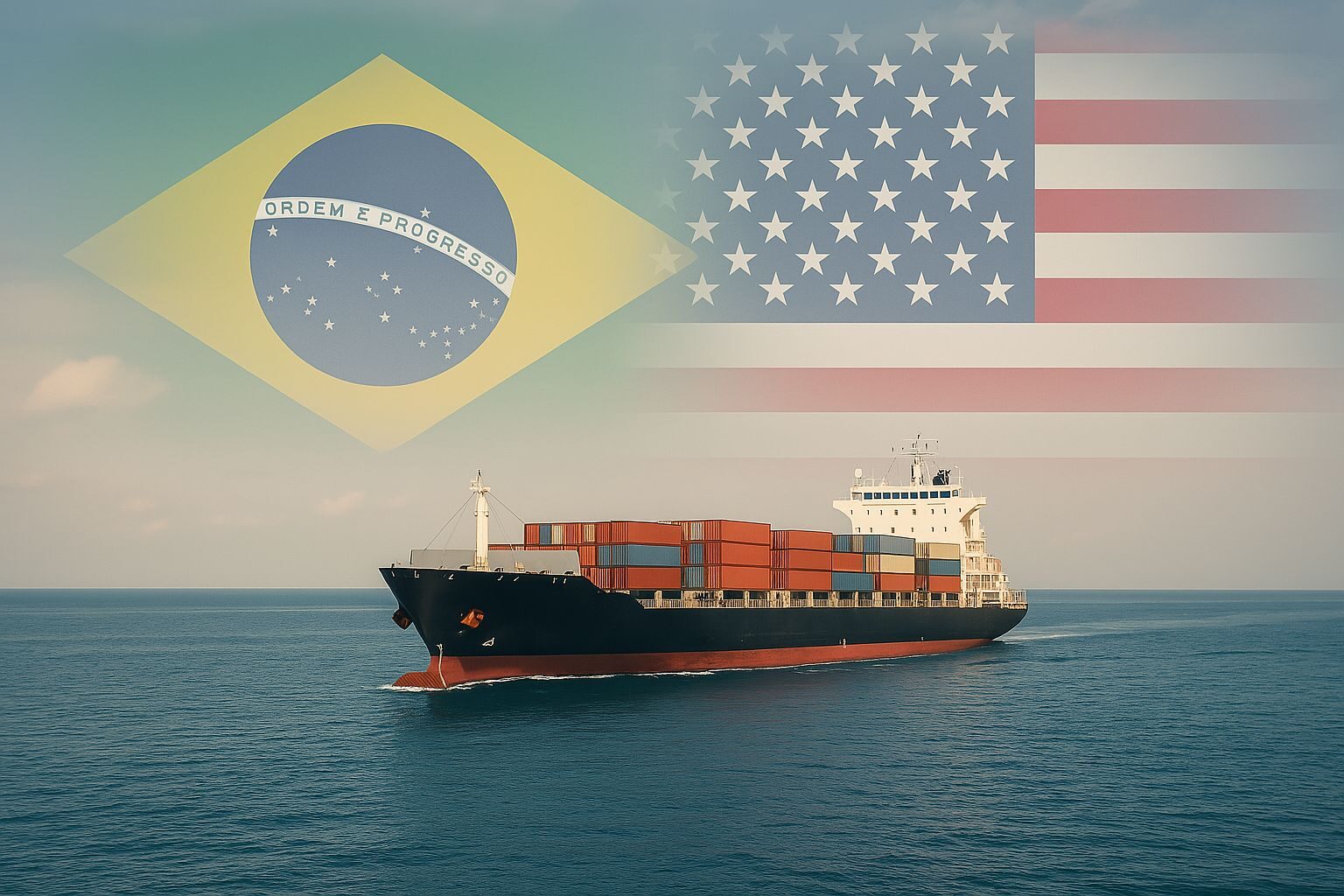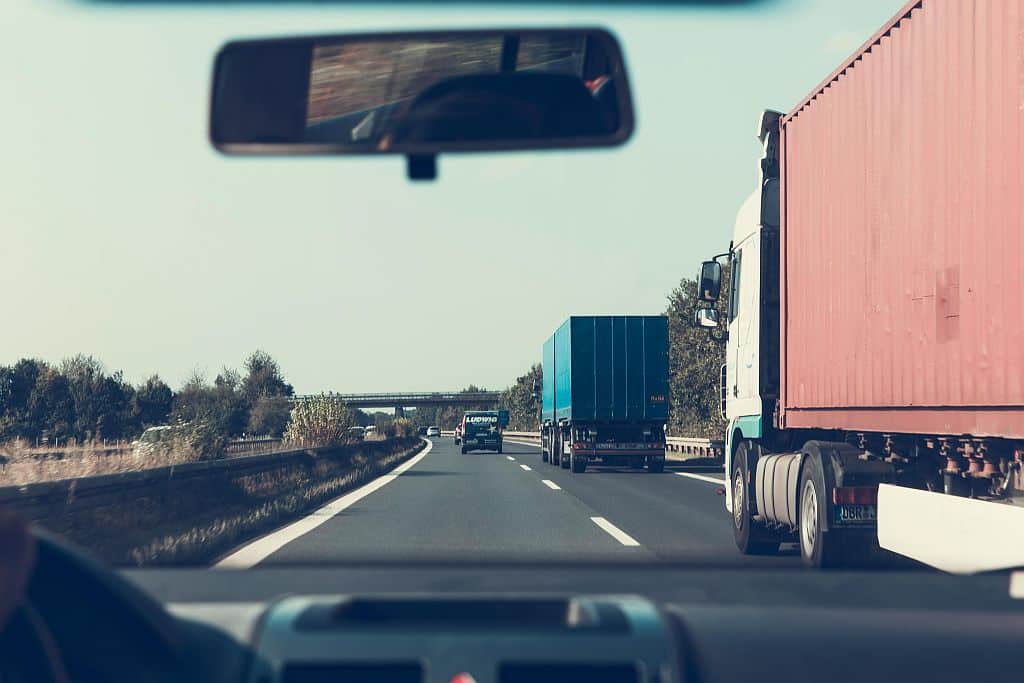Importing Brazilian Sugar
Brazil isn’t just a land of samba and sunshine; it’s a global sugar powerhouse. Did you know that Brazil consistently leads the world in sugar production and exports? Accounting for nearly 50% of the global sugar trade, this South American giant plays a pivotal role in sweetening the world’s coffee, tea, pastries, and countless other treats.
Whether you’re a seasoned importer or exploring the sugar market for the first time, this comprehensive guide will equip you with the knowledge and insights needed to successfully navigate the world of Brazilian sugar imports. We’ll delve into the reasons why Brazilian sugar is a top choice for businesses worldwide, the intricacies of the import process, and essential market trends to help you make informed decisions.
By the end of this guide, you’ll be well-versed in the advantages of Brazilian sugar, understand the steps involved in bringing it to your shores, and gain valuable insights into the dynamics of this vibrant market. So, buckle up and get ready to embark on a journey into the sweet world of Brazilian sugar!
Why Choose Brazilian Sugar?
Brazilian sugar isn’t just another commodity; it’s a symbol of quality, sustainability, and reliability in the global sugar market. Here’s why discerning importers and buyers consistently turn to Brazil for their sugar needs:
Uncompromising Quality: Brazil boasts some of the world’s most stringent quality standards for sugar production. From the vast sugarcane fields to state-of-the-art processing facilities, every step is meticulously monitored to ensure that the final product meets international benchmarks for purity, consistency, and taste. Brazilian sugar is available in a variety of forms, including Very High Polarization (VHP) sugar, crystal sugar, and refined sugar, catering to diverse industrial and consumer needs.
Sustainability at its Core: Brazil is a global leader in sustainable sugar production. The industry has embraced responsible farming practices, such as minimizing water usage, reducing greenhouse gas emissions, and promoting biodiversity. Many Brazilian sugar producers are certified by organizations like Bonsucro, which sets rigorous standards for social and environmental responsibility. By choosing Brazilian sugar, you’re not just getting a high-quality product; you’re also supporting sustainable practices that benefit both the environment and local communities.
Reliable Supply Chain: Brazil’s vast sugarcane plantations and efficient production infrastructure enable a consistently reliable supply of sugar. Importers can count on Brazil to deliver large volumes of sugar on time and according to specifications, even during periods of global market fluctuations. This reliability is a crucial factor for businesses that depend on a steady supply of sugar for their operations.
Price Competitiveness: Thanks to economies of scale and advanced agricultural technologies, Brazil enjoys a significant cost advantage in sugar production. This translates to competitive prices for importers, making Brazilian sugar an attractive option for businesses looking to optimize their costs without compromising on quality.
Market Access and Trade Agreements: Brazil has established extensive trade agreements with countries around the world, making it easier for importers to access its sugar. Additionally, the country has well-developed logistics networks, including major ports like Santos, Paranaguá, and Recife, which facilitate efficient and cost-effective shipping to global destinations.
Importing Brazilian sugar involves a well-defined process that, when understood and executed correctly, can be both straightforward and rewarding. Let’s break down the key steps involved in bringing this sweet commodity from Brazil to your doorstep:
Finding a Reliable Supplier:
Types of Suppliers: Your first step is to identify potential sugar suppliers in Brazil. There are two main types:
Sugar Mills: These are the companies that directly produce sugar from sugarcane.
Trading Companies: These firms specialize in buying sugar from mills and selling it to international buyers.
Due Diligence: Regardless of the supplier type, it’s crucial to conduct thorough due diligence. This includes verifying the supplier’s reputation, financial stability, production capacity, certifications (e.g., Bonsucro, ISO), and export experience. Consider requesting references and checking online reviews or industry forums.
Contract Negotiation: Once you’ve selected a supplier, you’ll need to negotiate a contract that clearly outlines the terms of the deal, including price, quantity, quality specifications, payment terms, delivery schedule, and dispute resolution mechanisms. It’s advisable to consult with a legal professional specializing in international trade to ensure your interests are protected.
Understanding Regulations and Tariffs:
International Trade Regulations: Sugar imports are subject to various international trade regulations and agreements. Familiarize yourself with these regulations, which may include tariffs, quotas, and specific quality or labeling requirements. The World Trade Organization (WTO) and your country’s trade authorities can provide valuable resources.
Import Tariffs and Quotas: Most countries impose import tariffs on sugar to protect their domestic industries. Research the specific tariff rates that apply to Brazilian sugar in your country. Additionally, some countries may have quotas that limit the amount of sugar that can be imported.
Legal Compliance: Ensure that you comply with all relevant import regulations and obtain any necessary licenses or permits. Engaging the services of a customs broker can be invaluable in navigating the complexities of customs procedures.
Logistics and Shipping:
Shipping Options: Brazilian sugar is typically exported in two primary forms:
Bulk Shipping: This involves transporting large quantities of sugar (often hundreds or thousands of tons) in specialized bulk carrier ships. Bulk shipping is generally more cost-effective for large-scale importers.
Containerized Shipping: Sugar is packed into standard shipping containers, which are then loaded onto container ships. This option offers greater flexibility for smaller orders and can be more convenient for importers with limited storage capacity.
Logistics Providers: You’ll need to engage the services of a freight forwarder or logistics provider to handle the transportation of your sugar shipment. These professionals will coordinate the entire shipping process, including booking cargo space on vessels, arranging for customs documentation, and managing the delivery of your sugar to its final destination.
Shipping Costs: Shipping costs are influenced by several factors, including the distance between Brazil and your destination, the type of shipping (bulk or containerized), the chosen shipping route, and the prevailing freight rates. Obtain quotes from multiple logistics providers to compare costs and ensure you’re getting a competitive price.
Insurance: It’s essential to have adequate insurance coverage for your sugar shipment to protect against potential losses due to accidents, delays, or other unforeseen events. Discuss insurance options with your logistics provider or insurance broker.
Quality Control: Arrange for quality control inspections at the loading port in Brazil to verify that the sugar meets your agreed-upon specifications. This can help prevent costly disputes and ensure that you receive the quality product you expect.
Delivery: Coordinate with your logistics provider to ensure a smooth delivery process. This may involve arranging for transportation from the port to your warehouse or processing facility. Be sure to inspect the shipment upon arrival to confirm that it matches your order and is in good condition.
Customs Clearance and Delivery:
Customs Procedures: Once your sugar shipment arrives in your country, it will be subject to customs clearance procedures. This involves submitting the necessary documentation, including the bill of lading, commercial invoice, packing list, certificate of origin, and any required import permits or licenses. Customs officials may also inspect the shipment to verify its contents and assess applicable tariffs.
Customs Broker: Hiring a customs broker can significantly simplify the customs clearance process. These professionals are well-versed in customs regulations and can handle the paperwork and interactions with customs officials on your behalf.
Duties and Taxes: Be prepared to pay any applicable import duties and taxes based on the classification and value of your sugar shipment. Your customs broker can advise you on the specific rates and procedures.
Final Delivery: Once your sugar shipment has cleared customs, it can be delivered to your designated location. Inspect the shipment carefully upon arrival to ensure it is in good condition and matches your order specifications.
Understanding the dynamics of the Brazilian sugar market is crucial for making informed import decisions. Here’s what you need to know to stay ahead of the curve:
Market Trends:
Supply and Demand: Keep a close eye on global sugar supply and demand trends. Factors like weather patterns in Brazil (which can affect sugarcane yields), global consumption patterns, and government policies can all influence sugar prices and availability.
Price Volatility: The sugar market is known for its price volatility. Stay informed about current and historical price trends, as well as forecasts from reputable market analysts. This will help you anticipate price fluctuations and make strategic purchasing decisions.
Emerging Trends: Watch for emerging trends in the sugar industry, such as the growing demand for sustainable and organic sugar, the increasing use of sugar in biofuel production, and the potential impact of technological advancements in sugarcane farming and processing.
Key Players:
Sugar Mills: Brazil is home to numerous sugar mills, both large and small. Some of the major players include Raízen, São Martinho, and Cosan. These mills are responsible for the production and processing of sugarcane into sugar.
Trading Companies: Trading companies like Alvean, Copersucar, and Czarnikow play a pivotal role in connecting Brazilian sugar producers with international buyers. They often have established networks and expertise in logistics and export procedures.
Industry Associations: Organizations like the Brazilian Sugarcane Industry Association (UNICA) and the Sugar Exporting Companies Association (AICE) represent the interests of sugar producers and exporters. They provide valuable market information and advocate for policies that support the industry.
Market Intelligence:
Market Reports: Numerous market research firms and industry publications produce regular reports on the Brazilian sugar market. These reports provide in-depth analysis of supply and demand, price trends, trade flows, and other relevant factors.
Online Resources: Several online platforms and websites offer real-time market data and news related to the Brazilian sugar industry. Websites like Barchart, Sucden Financial, and S&P Global Platts are valuable resources for tracking prices and market developments.
Networking: Attending industry conferences and events, such as the Sugar & Ethanol Week in Brazil, can provide valuable opportunities to network with sugar producers, traders, and other stakeholders. Building relationships within the industry can give you access to valuable insights and market intelligence.
The Brazilian sugar industry is constantly evolving, so stay informed about market developments and emerging trends. Building relationships with key players in the industry can provide you with valuable insights and opportunities. Embrace the potential of Brazilian sugar to sweeten your business success and contribute to a more sustainable future.
If you’re ready to take the next step in your Brazilian sugar import journey, don’t hesitate to reach out.
We can provide you with personalized guidance and support tailored to your specific needs and goals.

